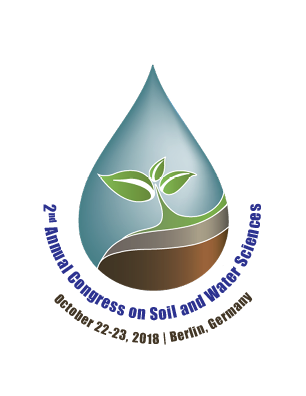Meryem Moustakim
Abdelmalek Essaadi University, Morocco
Title: Assessment of climate change impact on soil erosion within an agro-ecosystem in Nakhla catchment basing on Caesium-137 and unsupported Lead-210 measurements
Biography
Biography: Meryem Moustakim
Abstract
Statement of the Problem: Water erosion is considered as a leading process of land degradation in Nakhla catchment, northwest of Morocco. This agro-environmental threat has negatively influenced on the quality of soil and water in the basin and caused the sedimentation of Nakhla dam. Soil erosion phenomenon could be subject to the impact of climate change due to the effects of periodic droughts and extreme events in the region.
Purpose: Thus, the purpose of this study is to assess the impact of climate change on soil erosion in Nakhla catchment over the last fifteen years, assuming that there has been no significant change in agricultural practices during this period.
Methodology & Theoretical Orientation: Caesium-137, that showed its potential as a reliable soil tracer, was combined with the re-sampling approach to compare soil movements over two periods (1954-2002 and 1954-2017) within an upland agro ecosystem in Nakhla catchment. Then, unsupported Lead-210 was measured to produce data on the mean annual erosion rate over the last 100 years using Mass Balance Model.
Findings: The preliminary results revealed that climate change has not negatively affected soil loss within the investigated agricultural field. Basing on Caesium-137 measurements, the comparative analysis of the soil redistribution estimates showed that soil loss rates have decreased from 36 t ha-1 yr-1 to 29 t ha-1 yr-1. This could be explained by the beneficial impact of the anti-erosive strategies that were implemented in the basin and sustainable agricultural practices applied by the farmers of the region. Quantification of water erosion with unsupported Lead-210 indicated a rate of 24 t ha-1 yr-1 for the period extending from 1917 to 2017.
Conclusion & Significance: The appropriate soil conservation strategies covered the stress generated by climatic disturbances on the natural resources in Nakhla catchment and adapted the basin to climate change.

